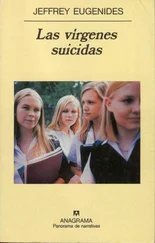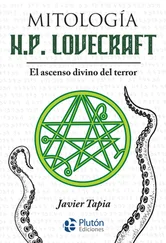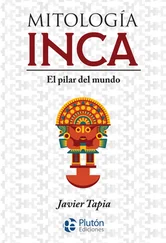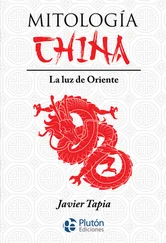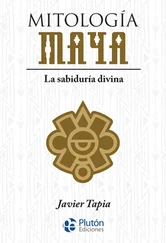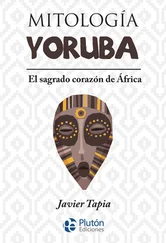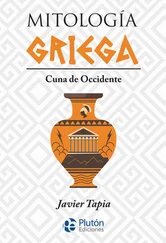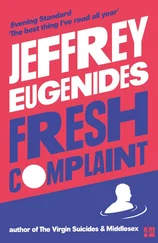One scene remains to be described in this portion of my life. It took place a week later, back on Middlesex, and featured me, a suitcase, and a tree. I was in my bedroom, sitting on the window seat. It was just before noon. I was dressed in traveling clothes, a gray pantsuit with a white blouse. I was reaching out my window, picking berries off the mulberry tree that grew outside. For the last hour I’d been eating the berries to distract myself from the sound coming from my parents’ bedroom.
The mulberries had ripened in the last week. They were fat and juicy. The berries stained my hands. Outside, the sidewalk was splotched purple, as was the grass itself, and the rocks in the flower beds. The sound in my parents’ bedroom was my mother weeping.
I got up. I went over to the open suitcase and checked again to see if I’d packed everything. My parents and I were leaving in an hour. We were going to New York City to see a famous doctor. I didn’t know how long we’d be gone or what was wrong with me. I didn’t pay much attention to the details. I only knew I was no longer a girl like other girls.
Orthodox monks smuggled silk out of China in the sixth century. They brought it to Asia Minor. From there it spread to Europe, and finally traveled across the sea to North America. Benjamin Franklin fostered the silk industry in Pennsylvania before the American Revolution. Mulberry trees were planted all over the United States. As I picked those berries out my bedroom window, however, I had no idea that our mulberry tree had anything to do with the silk trade, or that my grandmother had had trees just like it behind her house in Turkey. That mulberry tree had stood outside my bedroom on Middlesex, never divulging its significance to me. But now things are different. Now all the mute objects of my life seem to tell my story, to stretch back in time, if I look closely enough. So I can’t possibly finish up this section of my life without mentioning the following fact:
The most widely raised type of silkworm, the larva of the Bombyx mori , no longer exists anywhere in a natural state. As my encyclopedia poignantly puts it: “The legs of the larvae have degenerated, and the adults do not fly.”
From my birth when they went undetected, to my baptism where they upstaged the priest, to my troubled adolescence when they didn’t do much of anything and then did everything at once, my genitals have been the most significant thing that ever happened to me. Some people inherit houses; others paintings or highly insured violin bows. Still others get a Japanese tansu or a famous name. I got a recessive gene on my fifth chromosome and some very rare family jewels indeed.
My parents had at first refused to believe the emergency room doctor’s wild claim about my anatomy. The diagnosis, delivered over the phone to a largely uncomprehending Milton and then bowdlerized by him for Tessie’s benefit, amounted to a vague concern about the formation of my urinary tract along with a possible hormonal deficiency. The doctor in Petoskey hadn’t performed a karyotype. His job was to treat my concussion and contusions, and when he was done with that, he let me go.
My parents wanted a second opinion. At Milton’s insistence I had been taken one last time to see Dr. Phil.
In 1974, Dr. Nishan Philobosian was eighty-eight years old. He still wore a bow tie, but his neck no longer filled out the collar of his shirt. He was reduced in all his parts, freeze-dried. Nevertheless, green golf slacks extended from the hem of his white coat and a pair of tinted aviator-style glasses gripped his hairless head.
“Hello, Callie, how are you?”
“Fine, Dr. Phil.”
“Starting school again? What grade are you in now?”
“I’ll be in ninth this year. High school.”
“High school? Already? I must be getting old.”
His courtly manner was no different than it had ever been. The foreign sounds he still made, the evidence of the Old World in his teeth, put me somewhat at ease. All my life dignified foreigners had petted and pampered me. I was a sucker for the soft-handed Levantine affections. As a little girl I had sat on Dr. Philobosian’s knee while his fingers climbed my spinal column, counting off the vertebrae. Now I was taller than he was, gangly, freak-haired, a Tiny Tim of a girl, sitting in gown, bra, and underpants on the edge of an old-fashioned medical table with step-drawers of vulcanized rubber. He listened to my heart and lungs, his bald head dipping on the long neck like that of a brontosaurus, sampling leaves.
“How’s your father, Callie?”
“Fine.”
“How’s the hot dog business?”
“Good.”
“How many hot dog places your dad has now?”
“Like fifty or something.”
“There’s one not too far from where Nurse Rosalee and I go in the winter. Pompano Beach.”
He examined my eyes and ears and then politely asked me to stand and lower my underpants. Fifty years earlier, Dr. Philobosian had made his living treating Ottoman ladies in Smyrna. Propriety was an old habit with him.
My mind was not fuzzy, as it had been up in Petoskey. I was fully aware of what was happening and where the focus of medical scrutiny lay. After I had pulled my panties down to my knees, a hot wave of embarrassment swept through me and by reflex I covered myself with my hand. Dr. Philobosian, not entirely gently, moved this aside. There was something of the impatience of the old in this. He forgot himself momentarily, and behind his aviator lenses his eyes glared. Still, he didn’t look down at me. He gazed gallantly off at the far wall while feeling for information with his hands. We were as close as dancing. Dr. Phil’s breathing was noisy; his hands shook. I glanced down myself only once. My embarrassment had retracted me. From my angle I was a girl again, white belly, dark triangle, foreshortened legs shaved smooth. My brassiere was bandoliered across my chest.
It took only a minute. The old Armenian, crouching, lizard-backed, ran his yellowed fingers over my parts. It was no surprise that Dr. Philobosian had never noticed anything. Even now, alerted to the possibility, he didn’t seem to want to know.
“You can get dressed now,” was all he said. He turned and walked very carefully to the sink. He turned on the water and thrust his hands into the stream. They seemed to be trembling more than ever. Liberally he squirted out the antibacterial soap. “Say hello to your dad,” he said before I left the room.
Dr. Phil referred me to an endocrinologist at Henry Ford Hospital. The endocrinologist tapped a vein in my arm, filling an alarming number of vials with my blood. Why all this blood was needed he didn’t say. I was too frightened to ask. That night, however, I put my ear to my bedroom wall in hopes of finding out what was going on. “So what did the doctor say?” Milton was asking. “He said Dr. Phil should have noticed when Callie was born,” Tessie answered. “This whole thing could have been fixed back then.” And then Milton again: “I can’t believe he’d miss something like that.” (“Like what?” I silently asked the wall, but it didn’t specify.)
Three days later we arrived in New York.
Milton had booked us into a hotel called the Lochmoor in the East Thirties. He had stayed there twenty-three years earlier as a navy ensign. Always a thrifty traveler, Milton was also encouraged by the room rates. Our stay in New York was open-ended. The doctor Milton had spoken to—the specialist—refused to discuss details before he’d had a chance to examine me. “You’ll like it,” Milton assured us. “It’s pretty swank, as I remember.”
It was not. We arrived from La Guardia in a taxi to find the Lochmoor fallen from its former glory. The desk clerk and cashier worked behind bulletproof glass. The Viennese carpeting was wet beneath the dripping radiators and the mirrors had been removed, leaving ghostly rectangles of plaster and ornamental screws. The elevator was prewar, with gilded, curving bars like a birdcage. Once upon a time, there had been an operator; no longer. We crammed our suitcases into the small space and I slid the gate closed. It kept coming off its track. I had to do it three times before the electrical current would flow. Finally the contraption rose and through the spray-painted bars we watched the floors pass by, each dim and identical except for the variation of a maid in uniform, or a room service tray outside a door, or a pair of shoes. Still, there was a feeling of ascension in that old box, of rising up out of a pit, and it was a letdown to get to our floor, number eight, and find it just as drab as the lobby.
Читать дальше
Конец ознакомительного отрывка
Купить книгу

